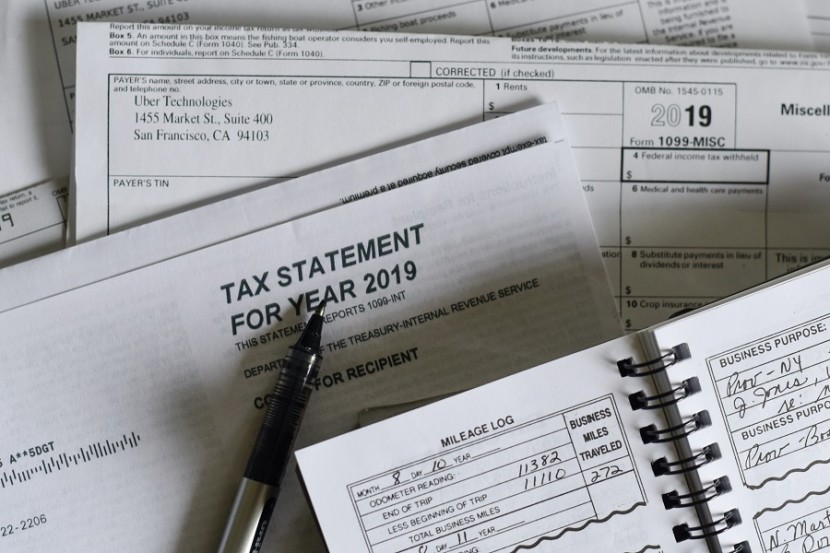
The money for the Child Tax Credit is expected to be distributed next month, and individuals who want to opt out of direct payments must notify the Internal Revenue Service (IRS). The Child Tax Credit was boosted under the American Rescue Plan, a $1.9 trillion rescue package with the IRS directed to distribute payments monthly.
The granting of stimulus payments will commence on July 15. The IRS has launched two new tools for people to verify their eligibility and choose whether they want to get their credit in a lump sum when they submit their taxes next year. The IRS introduced the Child Tax Credit Eligibility Assistant on Wednesday, a tool that allows individuals to see if they are eligible for the higher credit.
To determine eligibility, taxpayers will need their 2020 tax return or their 2019 return or income statements if they haven't filed for 2020 yet. The Child Tax Credit Portal is the second tool that allows taxpayers to opt-out of monthly payments. Anyone may unenroll if he or she fears that they won't qualify for the credit due to a change in income, migration out of the country, or in a case where his kid is claimed by someone else. They may be compelled to repay the money if they do not do so.
The IRS tax credit portal is now available ahead of the July 15 deadline for the first monthly payments. Trish Walker said, "If they filed a tax return for 2020 and those children, they are claiming on that 2020 tax return. So they don't have to do anything. They are going to start getting it automatically."
These payments will be made only until the end of 2021. According to Mervin Jebaraj of the University of Arkansas, the new child tax credit will cut the child poverty rate in the United States in half, as per 5newsonline.
Read Also: Fourth Stimulus Check Not Coming? How to Get Bonus Payment Instead of Another Round of Reliefs
Some reasons why you may opt-out of the monthly payments
Dennis Linden, a certified public accountant, and director for the Northeast Ohio region of CBIZ MHM told Yahoo Money that the Child Tax Credit payments need to be paid if too much is given, unlike economic impact payments. Also, it may be unpleasant in April 2022 when the 2021 tax return is filed.
1. You may owe tax next year.
Households who qualify for the Child Tax Credit will get half of their entire credit for 2021 in advance payments starting July 15 and ending in December. However, if you usually owe the government money and use the CTC to reduce it, taking half of your 2021 credit as advance payments might result in a larger tax burden in April 2022.
The amount parents may claim in 2021 is also higher. This means families will likely receive a larger tax credit for the year. In 2021, the highest credit that taxpayers may receive is $3,600 for children under the age of six and $3,000 for children from six to seventeen. Previously, the highest tax credit for children under the age of 17 was $2,000 per child.
2. Your income exceeds the income eligibility thresholds.
If you get more than the income qualifying limits of the CTC this year, you might wish to unenroll. Selling the property in 2021, as well as other income gains, may affect your credit eligibility.
A single filer with children under the age of 17 who earns up to $75,000 will get the full payment for each kid while those who earn up to $90,000 would receive a reduced payment. Joint filers with children who earn up to $150,000 will receive the full credit, and those who earn up to $170,000 would receive a reduced amount.
3. A parent may owe money to the IRS.
Divorced parents should be cautious about making advance payments. Therefore, they should consider opting out of the program. The parent who claimed the child on the return in 2020 or 2019 will receive the advance payment.
This parent may owe the IRS money if the situation has changed. You also have to refund the amount of money you got in advance if you have resided outside the country for more than half of 2021.
Who needs to opt out of Child Tax Credit?
"Among the three new tools now available on IRS.gov to help families understand, register for, and track these payments, the Update Portal is a key piece," IRS Commissioner Chuck Rettig said, Newsweek via MSN reported. Taxpayers can claim $2,000 for each qualifying child listed as a dependent on their tax return under the traditional Child Tax Credit.
Congress increased the Child Tax Credit to $3,600 for children under the age of six and $3,000 for children aged six to seventeen to assist in offsetting of financial burden brought about by the pandemic. The monthly stimulus payments will be worth one-twelfth of the total amount owing to a taxpayer.
They'll be worth $250 or $300 depending on the child's age, and they'll be available until December. After submitting a 2021 tax return next year, the remaining money due to a person will be reimbursed.
However, the increased tax credit is not available to all parents. Individuals must have an adjusted gross income of less than $75,000 to qualify, and joint filers can only earn up to $150,000. People with incomes below $200,000 and joint filers with incomes below $400,000 will receive a reduced payment, but not below the standard deduction of $2,000 for individuals with incomes below $400,000, which is the income level for the deduction.
Related Article: Child Tax Credit: Here's How to Ensure You Get $3,600 New Stimulus Checks as IRS Sends Millions More Additional Payments
@YouTube
© 2025 HNGN, All rights reserved. Do not reproduce without permission.








